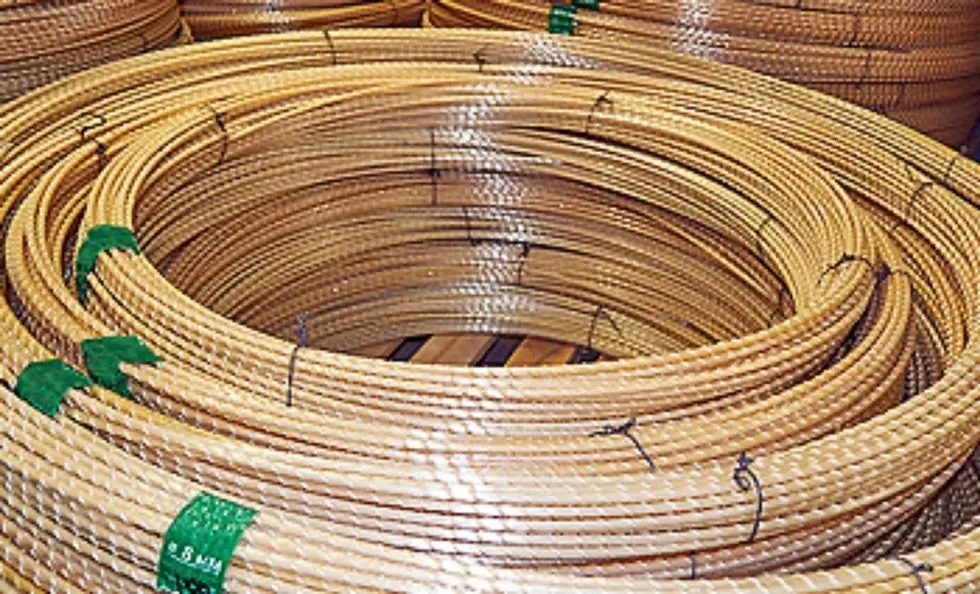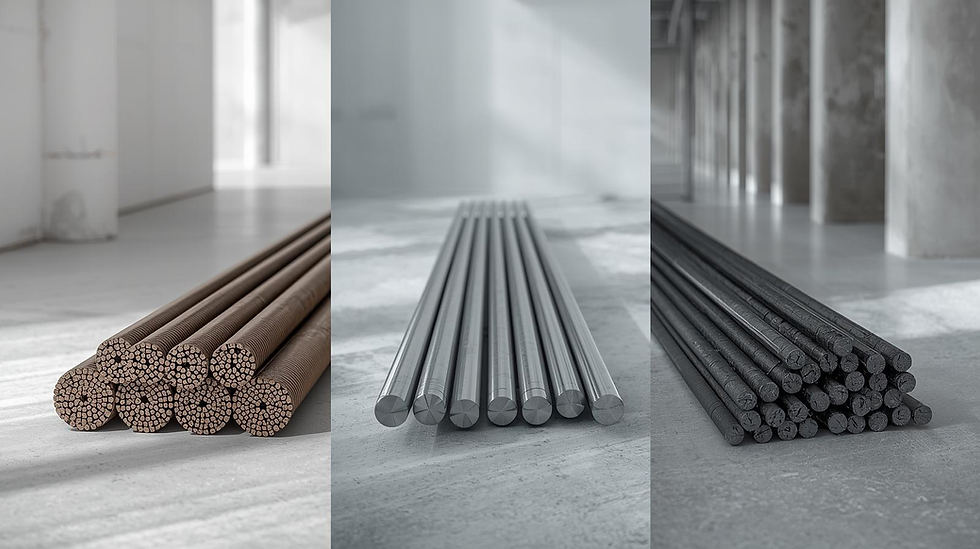Different Types of GFRP Rebars and Their Applications
- Kamal Sharma
- Aug 26
- 3 min read
Updated: Aug 28
The modern construction industry is rapidly evolving with the increasing consumer demands. People have now become more aware and opt for things that are environmentally friendly. To meet the demand, new technologies and materials are emerging, offering various perks. For instance, Glass fibre reinforced polymer (GFRP) rebar has become popular in recent years. This material is well-known for its high strength-to-weight ratio, resistance to corrosion, and sustainability. which has made them popular in engineering, automotive, and industrial applications.
This article explores what GFRP is, the different types available, and how each type serves unique purposes.

Understanding the Types of GFRP Rebars
GFRPs are manufactured by combining glass fibers with polymer resins, and the process is the same for every type. However, the variation comes from the type of glass fiber used and the resin system. Each type offers different mechanical, thermal, and chemical properties.
Let’s take a look at the different types of GFRP rebars
1. E-glass GFRP
These rebars are made from alumino-borosilicate glass with low alkali content.
Properties of E-glass GFRP
They offer good electrical insulation,
The lightweight property makes it easy to install and transport
The rebars are a cost-effective solution
They have decent mechanical strength.
2. S-glass GFRP
This type of rebars has high silica content glass with alumina and magnesium oxides.
Properties of S-glass GFRP
They have higher tensile strength and stiffness compared to E-glass
They offer good thermal resistance.
They are resistant to chemicals and can be used in a corrosive environment.
3. C-glass GFRP
Amongst the many types of GFRP rebar available, this one is well-known for its usage in acidic environments. The composition includes calcium-aluminum silicate-based glass, which makes it resistant to corrosion.
Properties
High Strength-to-Weight Ratio
Excellent fatigue strength
Corrosion-resistance
4. AR-glass (Alkali Resistant) GFRP
Many materials start to degrade or crack in an alkaline environment, which can impact the integrity of a structure. AR-glass GFRP is modified with zirconium oxide to resist alkaline attack.
Properties of AR-glass GFRP
Durability in cement-rich and alkaline environments.
High tensile strength
These glass fibers also offer resistance to corrosion.
5. Quartz-glass GFRP
These high-purity silica-based glass fibers are often used to manufacture laboratory equipment
Properties of Quartz-glass GFRP
Superior thermal stability,
Very low thermal expansion, and
High chemical resistance.
Applications of GFRP Rebar Across Different Industries
While steel reinforcement has been a traditional material for most industries, FRP rebars are gaining popularity considerably. This is due to the excellent properties that make them ideal for applications where steels lack.
Here are a few industries that have started using glass fiber reinforced polymer rebars:
Construction and Infrastructure
GFRP is corrosion resistant and provides longer service life in structures exposed to water or de-icing salts. In sewage systems, dams, and retaining walls, GFRP ensures durability against harsh chemicals. They are also being widely used in bridges, flyovers, highways, and tunnels.
Marine and Coastal Structures
The humid and salty environment in ports, docks, and jetties often leads to corrosion in metals. But with the non-corrosive nature of GFRP, contractors now don’t have to worry about the harsh environment impacting the integrity of these structures.
Industrial Applications
Chemical plants and pipelines use C-glass and vinyl ester-based GFRP for resistance against aggressive chemicals. Storage tanks and water treatment facilities often use GFRP composites.
Aerospace and Automotive
S-glass GFRP plays a role in aircraft parts, defense equipment, and sports cars where strength and lightweight properties are crucial.
Power and Electrical Sector
GFRP provides insulation in transformers, insulators, and transmission lines due to its excellent dielectric properties.
Wrap Up
Glass fiber reinforced polymers use advanced reinforced technology, which makes them durable and corrosion resistant. Plus, they are lightweight, so you don’t have to worry about paying a high price for transportation and installation.



Comments